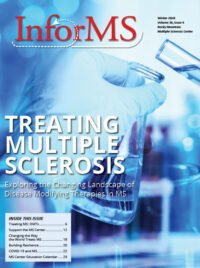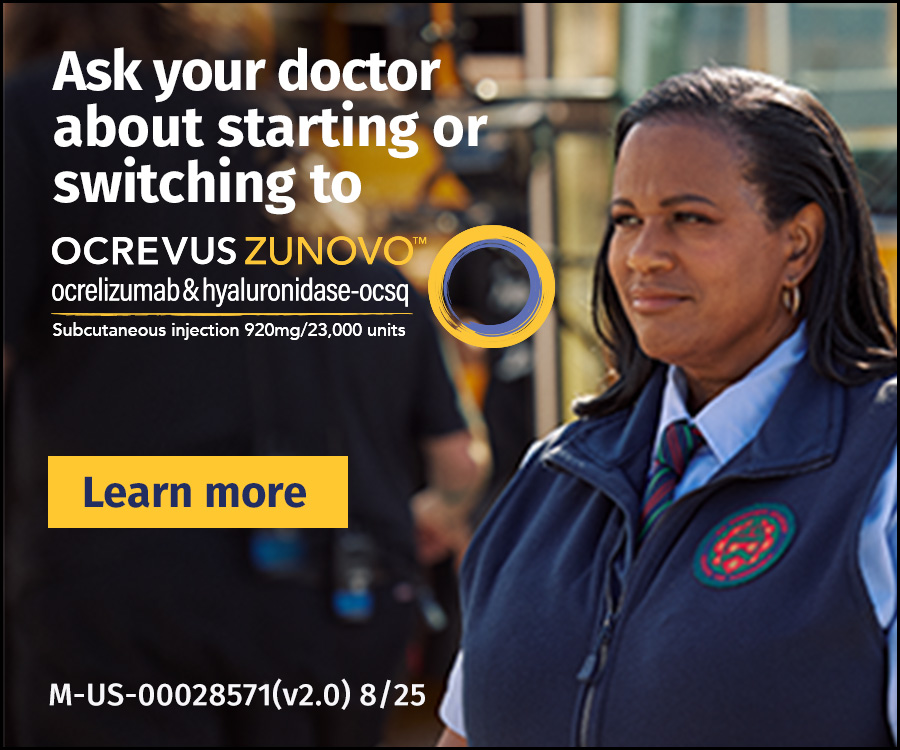A Look at Current Research Priorities at the Rocky Mountain MS Center at University of Colorado
The Rocky Mountain MS Center at University of Colorado is the home of one of the largest MS research programs in the world.
The MS Center’s cutting-edge research program conducts basic science, clinical trials and translational research to find effective MS treatments and strategies for maximizing lifelong brain health in MS patients.
At any moment, there are dozens of studies and trials underway with patient participants from around the region. The results from this work are driving our medical care approach to maximize lifelong brain health through comprehensive care, which supports the brain’s ability to protect and repair itself and promotes quality of life for patients and their families.
Our physicians and scientists play a critical role in the development of current and emerging MS therapies, as well as studies to better understand the biological basis of the disease. Below are summaries of current priority research studies and clinical efforts supported by the Rocky Mountain MS Center.
Translational Research Lab
Project Lead: Dr. Timothy Vollmer
RMMSC at CU’s Translational Research Lab will support the RISE/DREAMS studies by analyzing potential biomarkers for developing MS. It also allows us to analyze biomarkers that identify active disease in MS patients on Disease Modifying Therapies or those going off treatment. It could also help neurologists to diagnose MS and related inflammatory disease. This approach appears to be more sensitive than MRI and only requires a simple blood sample. Our hope is that the Translational Research Lab will eventually lead to a focus on identifying the best therapy for individual MS patients and lay a foundation for testing possible reparative therapies. We are extremely grateful for two separate donations of $1 million each that have helped lay the groundwork for our Translational Research Laboratory which is supporting a number of researchers working on MS and related diseases and also researchers investigating Alzheimer’s and other diseases.
RISE/DREAMS Study: Risk Factors in Early MS
Project Lead: Dr. John Corboy
The RISE/DREAMS studies are designed to create an MS risk profile to identify genes, biomarkers, or environmental circumstances that are associated with earliest manifestations of MS.
The studies are examining asymptomatic, first-degree relatives of MS patients between 10 and 30 years of age. Using the data and biomarker analyses, we aim to identify risk factors to diagnose and treat MS as early as possible.
Biorepository
Project Lead: Dr. Enrique Alvarez
Biomarkers are biological markers that can be used in diagnosis, selecting treatments, and evaluating treatment responses. Having pre-collected samples is invaluable for this research. Having these samples available has helped support the research of multiple neuroimmunology investigators and led to collaborations with other investigators.
Projects include collecting paired cerebrospinal fluid and blood samples from patients undergoing lumbar punctures. We also aim to expand sample collection to longitudinal plasma and blood collections from patients starting DMTs to learn more about the effects of these medications in MS over time.
Patient Reported Outcomes (PRO) Program
Project Lead: Dr. Enrique Alvarez
It is critical for a physician to understand MS patients’ experiences and changes in symptoms over time. This understanding enables us to provide high-quality and cost-effective care that is responsive to the individual needs and concerns of patients. This information is also critical for understanding broader trends across the patient population that could inform care and research.
Our Patient Reported Outcomes (PRO) Program creates a systematic process for collecting information from patients on their quality of life using questionnaires that cover factors such as depression, anxiety, cognition and mobility. The PRO program has already been successfully piloted and implemented in the RMMSC at University of Colorado. n
The success of our research studies and clinical initiatives depends on the broad support of the MS community in the Rocky Mountain MS Center region, both financially and through participation in current and upcoming studies.
To donate to our efforts, please take a look at the information on pages 12 and 13 of this issue.
To see if you’re eligible to participate in a current or upcoming study, please contact our research recruitment specialists at (303) 724-4644 or by e-mail at NeurologyResearchPartners@ucdenver.edu.






